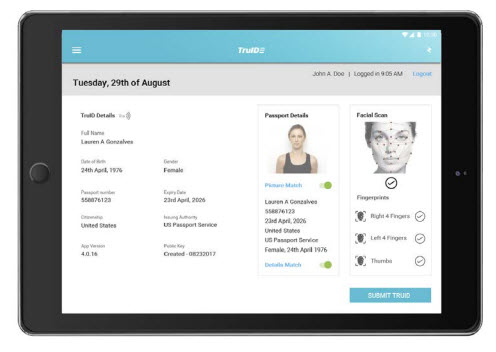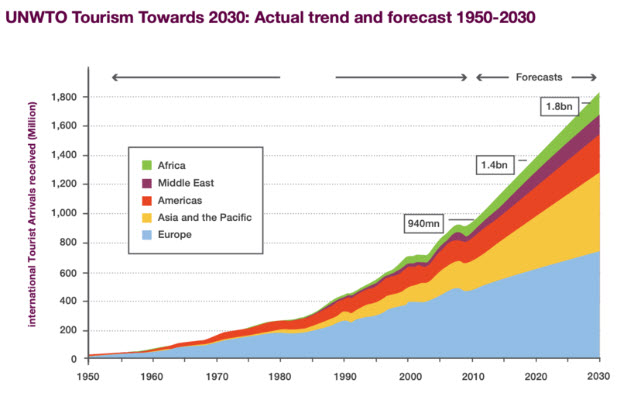Points Miles and Bling (blog) contains referral or affiliate links. The blog receives a small commission at no additional cost to you. Thank you for your continued support. Credit Card issuers are not responsible for maintaining or monitoring the accuracy of information on this website. For full details, current product information, and Terms and Conditions, click the link included.
The World Economic Forum in collaboration with the governments of Canada and the Netherlands has launched a pilot project for passport free travel between the two countries. The project also includes collaboration from border security, airports, technology providers and airlines. The pilot project is still in the testing phase, but is expected to be rolled out at Montreal’s Pierre Elliott Trudeau (YUL) and Toronto’s Pearson (YYZ) international airport by early 2020.
Passport free travel – The Known Traveler Digital Identity Program
The Known Traveler Digital Identity (KTDI) program leverages biometrics (fingerprints, facial recognition) and blockchain technology to continuously verify a travelers data at every leg of the journey until they reach their destination. Over a period of time, a traveler will be able to establish a ‘known traveler status’. The World Economic Forum says it will put passengers in charge of when and how their data is shared. The information will be stored and encrypted on a passenger’s mobile device, rather than on their passport chip.
The World Economic Forum and Accenture published a report on the KTDI programme which describes the concept as following;
This Known Traveller Digital Identity concept is founded on the principle that an individual traveller has control over the use of their own identity and its components. Due to this decentralization of control over the components of their identity, a traveller can push proof of their identity information – secured by distributed ledger technology and cryptography – to governmental and private-sector entities throughout their journey. Access to verified personal biometric, biographic and historical travel data will enable entities along the way to undertake advanced risk assessment, verify travellers’ identities and provide seamless access through biometric recognition technology. All of this can be achieved without the need to have personal data stored in one central database, which would pose too great a risk for stakeholders responsible for securely handling personal identity information.
As per my understanding of the report, the process should work like this;
- Passengers will have their biometric data stored in an ‘e-passport’, on their mobile device, and will be able to control who and when they share that data
- Once they arrive at the airport, that data will be shared (with passenger consent) with border authorities and airlines
- The authorities use this data to cross check several shared systems between governments throughout the passenger journey
- Over a period of time, the passenger will build their trusted/known traveler identity
The KTDI will allow a faster and seamless flow of passengers through airports. The program was initiated in response to the growing demand of air travel and airports struggling to keep up with the volumes. The UN World Tourism predicts that the International tourist arrivals are set to hit 1.8bn by 2030, a 50% increase from 2016!
Passport free travel – Take Away
There is no denying that the travel industry in general needs a radical overhaul, to better manage security and passenger experience. While I am excited about passport free travel and KTDI as a concept, the success of the program will rely heavily on governments and the politics of each nation, willing to share the level of data and take responsibility of the same. Given that most of the growth in air travel is predicted to be in/to developing countries, it will require monumental resources and accountability to bring these countries ‘up to speed‘. I suspect the KTDI program will be an enhanced version of NEXUS wherein a select group of countries will be able to leverage the technology. I cant wait for the program to be rolled out in Canada, any technology that makes passenger experience less stressful is most welcome.
Does the concept of passport free travel excite you as well? What are your thoughts on the proposed Known Traveler Digital Identity program?



2 comments
Good luck if you lose your phone while travelling.!
Ha! True..not sure what their policy in such a situation would be. A very real issue..